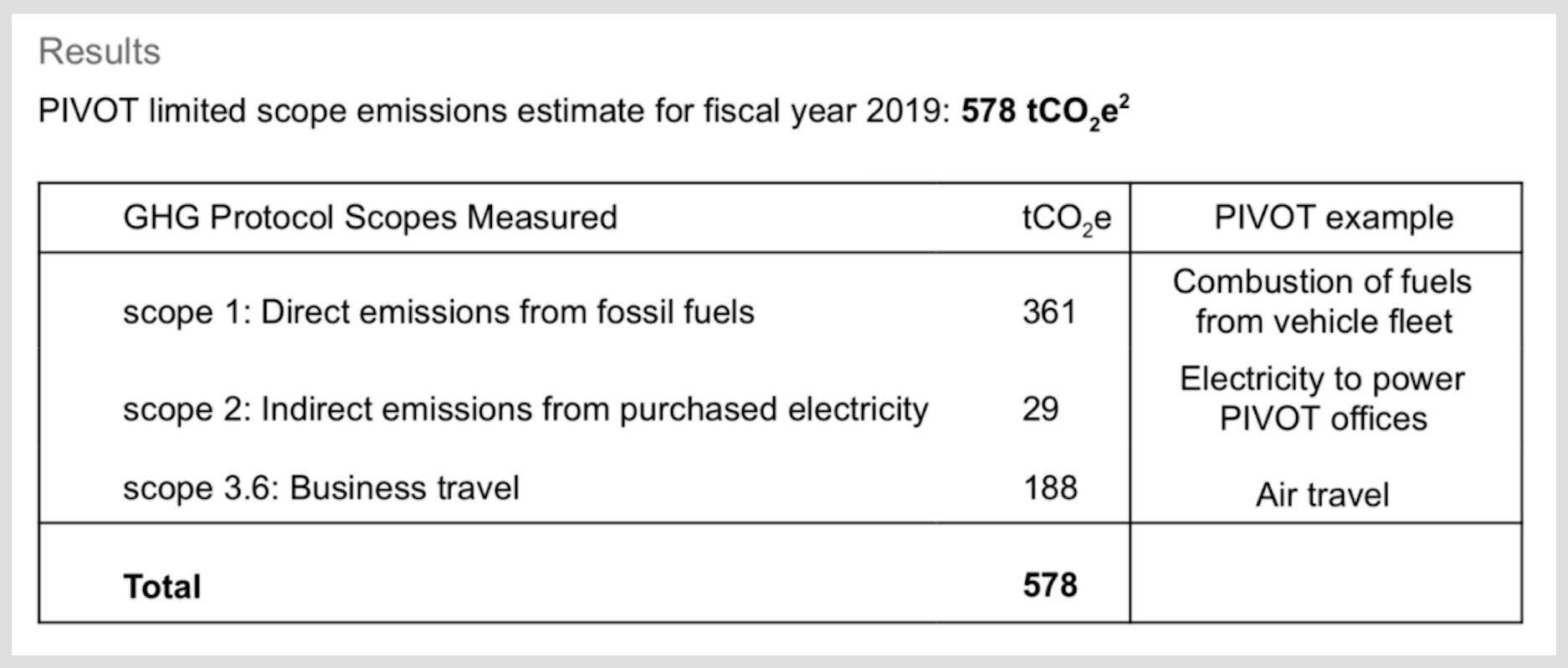16 Oct Our Carbon Emissions Baseline Study & A Commitment To “Come Back Better” After COVID
As a lifelong environmentalist leading an organization with a commitment to people and planet, understanding the health of one is inextricably linked to the health of the other, I was thrilled to receive an invitation earlier this year to commit to “come back better” from the great COVID pause, during which our planet has exhaled a bit while we’ve slowed down and polluted less.
It is no accident that PIVOT’s first district of intervention in Madagascar – among the most vulnerable countries in the world given geographic location and chronic poverty – is one that holds the World Heritage-designated Ranomafana National Park, serving as a constant reminder that we must be good stewards of it and all natural resources as we do our work to strengthen the surrounding health system as a model for universal health coverage for the country.
Personally, hopping off the hamster wheel of flying around the world in order to do my job as well as possible has been a relief as I consider my own carbon footprint. And this invitation from our partners Dai Ellis and Zach Leverenz laid a welcome path for me to lead PIVOT in the direction of organizational carbon accountability as well.
Here are their words from July 3, 2020:
Global health and development organizations must take greater accountability for their carbon footprint to more fully uphold their missions to save lives and create better livelihoods.
No longer can we afford to ignore the climate harm we create in order to improve global health. The COVID crisis is laying bare just how inseparable the axes and causal pathways of inequality truly are – from economic to race to disease to climate and more. Given this we believe there is a moment of opportunity to engage a small group of NGOs and foundations that are highly committed to environmental justice to develop evidence-based practices that push the field toward taking full carbon accountability. Specially, we imagine this initial group tackling difficult questions around how to a) measure carbon emissions through GHG protocol methodology; b) change travel patterns and reduce footprint as we return from a zero-travel COVID period toward a ‘new normal’, and c) make smart decisions about carbon offset purchasing to mitigate the footprint that can’t be eliminated.
My answer to their invitation was a resounding “YES.”
And, as such, PIVOT joined Evidence Action, CHAI, and PIH as a four-organization group, led by Dai and Zach, to begin this journey.
Step one was conducting a baseline measurement of our carbon emissions as a first step toward moving PIVOT toward full carbon accountability. With support from PIVOT colleagues Alexis Moisand and Natacha Jajaona, we provided the following FY19 inputs:
- for GHG Protocol Scope 1) 170,395 liters (of fuel used by our PIVOT fleet of cars and generators in country);
- for Scope 2) 30,944 kwh (electricity units consumed by bills paid by PIVOT for health facilities and office space in country); and
- for Scope 3.6) 1,114,000 miles (99% of which is by air) travelled by PIVOT staff.
In total this places our limited scope emissions estimate for FY19 at 578 tCO2e2 (equivalent to 36 US persons or 126 cars). And while that may not seem as egregious as it could be, I know we can do better.

The next steps are to make commitments for reductions by: reducing our fleet size and considering carbon emissions as a factor in all air travel decisions (already underway); examining other ways in which our work has negative environmental impacts such as medical waste and plastic consumption to propose changes (planned for 2021); making explicit for our staff that our sustainability value means both sustainability in the sense of long-term government partnerships and sustainable environmental practices for the planet; and, pending buy-in from our partners, offsetting our annual emissions by supporting local environmental conservation organization Centre ValBio’s continued reforestation in the area.
Going forward, we will track the inputs provided for FY19 on an annual basis and indeed come back better from the COVID pause.
On September 16, 2020, I presented our work for the InterAction Learning Series Climate Presentation. And on January 22, I have a meeting with the CEOs of PIH, CHAI, and Evidence Action to chart a course together to invite more organizations in our field to join us in this work. For anyone interested in seeing the full report 2019 Carbon Emissions Baseline Study, please don’t hesitate to get in touch with us directly.
Your thoughts and encouragement are most welcome!
